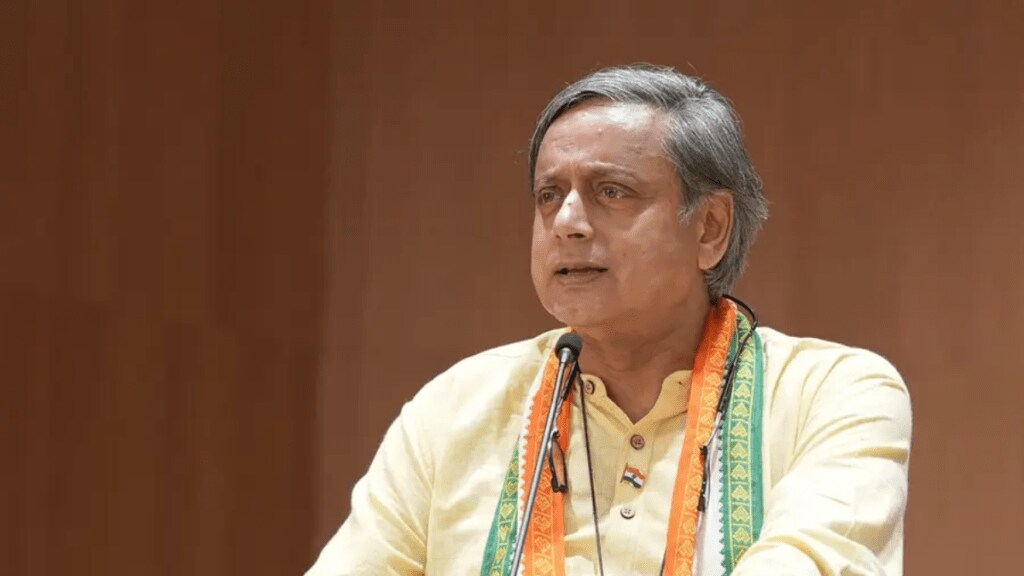Congress MP Shashi Tharoor has once again, as Congress described, started “repeating BJP lines word for word”. The senior Congress leader has tagged the 21-month-long Emergency as India’s “dark period” and called out the “terrible atrocities” that took place during that time. Not just that, he also shared a poll, endorsing himself for the post of Kerala CM.
‘Heeding the lessons of India’s Emergency’
Tharoor stirred the hornet’s nest with a sharply worded opinion piece in the Malayalam daily Deepika around the 50th anniversary of the Emergency. He shared an English version of the article on X (formerly Twitter), which is headlined – “Heeding the lessons of India’s ‘Emergency’”.
In the article, he highlighted the “erosion of freedom” and how “democratic stalwarts must be eternally vigilant”.
‘Unspeakable cruelty in the name of order’
He also said that the efforts undertaken by Prime Minister Indira Gandhi to enforce “discipline” and “order” during that time often turned into acts of “unspeakable cruelty” that could not be justified. He said that not only were fundamental rights suspended, but the press was also silenced, and political dissent was “brutally” suppressed.
Tharoor recalled leaving for the US during that time and “observing” the Emergency from afar. He also wrote about how the Supreme Court “buckled” under the “immense” pressure to back the then PM’s decision, adding that people were “tortured in detention” and “extrajudicial killings” took place.
“Sanjay Gandhi, the son of Indira Gandhi, led forced sterilisation campaigns, which became a notorious example of this. In poor rural areas, violence and coercion were used to meet arbitrary targets. Slum demolitions, carried out with ruthless efficiency in urban centres like New Delhi, rendered thousands homeless, with little to no concern for their welfare,” the Thiruvananthapuram MP wrote.
‘Unchecked power had become tyrannical’
Tharoor further said that the Congress downplayed the “cruel” acts it committed during the Emergency, adding that “unchecked power had become tyrannical”.
“In the Emergency’s immediate aftermath, there was a fleeting sense of order imposed, a temporary respite from the unruliness of democratic politics. But the violence was a direct consequence of a system where unchecked power had become tyrannical, and whatever order the Emergency delivered came at a very high price: the soul of our republic,” he added.
He then reminded readers that Indira Gandhi was ousted in the first free elections after the Emergency as her actions left an “indelible scar on India’s polity”.
‘Today’s India is not the India of 1975’
He said democracy is not something to be taken lightly; it is a precious legacy that must be constantly nurtured and preserved.
“Let it serve as a lasting reminder to people everywhere,” Tharoor said. According to him, today’s India is not the India of 1975.
“We are a more self-confident, more developed, and in many ways a stronger democracy. Yet, the lessons of the Emergency remain alarmingly relevant,” he said.
Tharoor warned that the temptation to centralise power, silence dissent, and bypass constitutional safeguards may reappear in various forms, and that lessons from it should be “internalised”.
“All of us – in India and around the world – who believe in democracy must ask ourselves: are we sufficiently attuned to the subtle erosion of democratic values? Could we recognise, let alone resist, the advent of strongman rule? Are we doing enough to protect the institutions, from the press to the judiciary to civil society, that safeguard our freedoms?” he further stressed.

